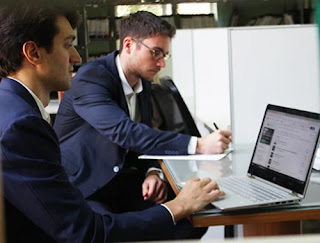Master of Global Business Degree at an Australian University in Singapore: What You Need to Know
Picture this—you’re attending a lecture on international marketing in Singapore, taught by an Australian faculty member, and next week, your class project involves solving a real-time business challenge for a regional company based in Jakarta. This isn’t a daydream. It’s a snapshot of life for students pursuing a master of global business course in Singapore through Australian universities operating in the city-state.
Today’s business students aren’t just looking for degrees—they’re looking for environments that mirror the pace, diversity, and unpredictability of the real world. That’s exactly what makes Singapore a natural choice, not just for its location, but for its classroom culture, its mix of East-meets-West business dynamics, and its active partnership with global education providers.
Why Australian Universities in Singapore Are Different?
When students sign up for a masters in business in Singapore via an Australian university, they’re not simply joining another business school—they’re entering a hybrid learning space. These institutions bring Australia’s academic structure into a region full of fast-paced business shifts. The result? Programmes that are both rooted in theory and intensely reactive to global trends.
Classes often blend Australian-style discussions with Southeast Asian business case studies. You’ll learn from professors who fly in from Australia and also from local professionals who bring insight from nearby markets. This mix creates an immersive business environment without needing to leave Singapore.
What You’ll Learn—And How
The masters in global business is less about memorising frameworks and more about thinking across borders. You’ll explore trade laws, leadership in multicultural settings, emerging markets, and risk strategies for international expansion.
But learning here isn’t just from textbooks. Industry visits, group simulations, and problem-solving sprints are part of the curriculum. And since many Australian campuses in Singapore collaborate with regional companies, don’t be surprised if you find yourself working on projects linked to real business goals.
Getting In—And Making It Worth It
Entry into these programmes usually requires an undergraduate degree and proof of English skills. What stands out in your application is clarity—why do you want a master of Global Business degree in Singapore, and how will you use it?
Fees can feel steep at first, but Australian universities often provide scholarships and flexible payment options. Some even allow credit transfer or dual-campus learning between Singapore and Australia, making your study path more adaptable.
What Happens After Graduation
A global business school in Singapore doesn’t just teach you—it connects you. The alumni networks, regional job fairs, and on-campus company presentations are all designed to put you in front of the right people. Many graduates move into roles across Southeast Asia or pivot into European or Australian markets.
Whether you land a job with a logistics firm in Vietnam or join a consultancy in Sydney, your degree has prepared you to speak the language of global business—both literally and culturally.
Conclusion
.jpg)


-Placements-release-website-update_Inside-image.jpg)
Comments
Post a Comment